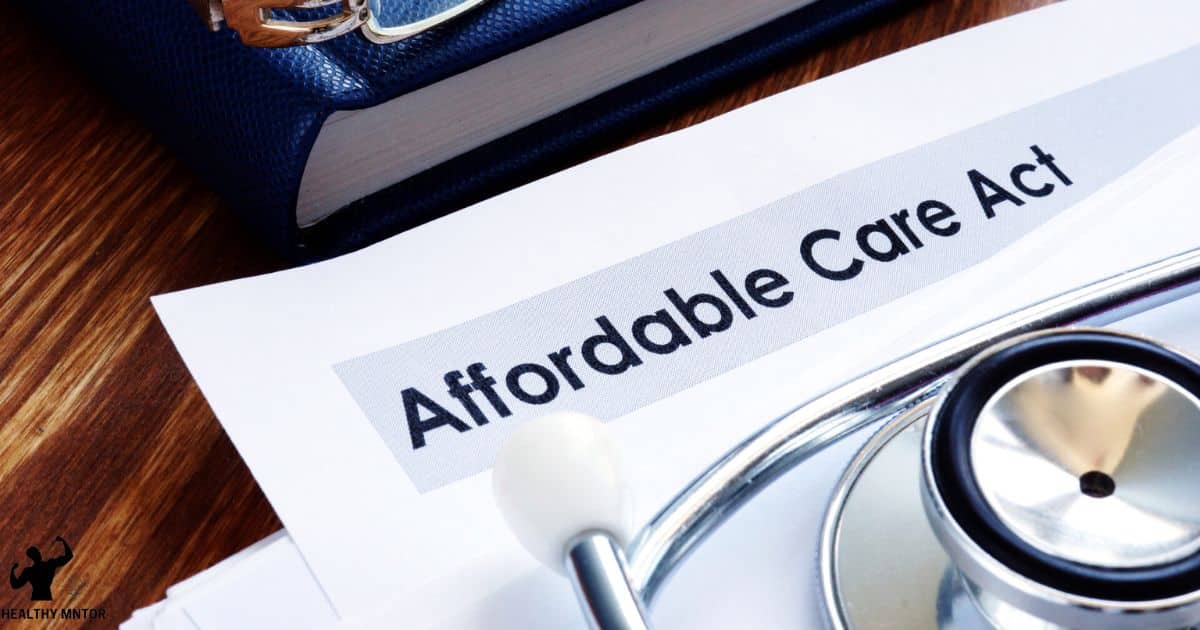In a society where access to healthcare is a fundamental necessity, the absence of health insurance can be a daunting challenge. However, fear not, for there are viable solutions to navigate through this predicament. This article aims to provide an objective, informative, and analytical guide on what steps to take if you find yourself without health insurance. From exploring Affordable Care Act options to seeking out community health clinics, we will delve into various strategies to ensure you receive the care you need, regardless of insurance status.
Key Takeaways
- Explore marketplace plans and compare premium costs to find affordable coverage options that fit your needs and budget under the Affordable Care Act (ACA).
- Research state and local assistance programs such as Medicaid, SNAP, TANF, LIHEAP, and WIC to determine eligibility and gather necessary documentation for enrollment.
- Be aware of the eligibility criteria and required documentation for each program, including proof of income, residency, and citizenship status, as well as medical records or proof of disability for some programs.
- When applying for assistance programs, ensure a stable internet connection, gather all required documents beforehand, and review specific application requirements for each program.
Exploring Affordable Care Act (Aca) Options
Frequently, individuals who lack health insurance are encouraged to explore the various affordable care options provided by the Affordable Care Act (ACA). Researching marketplace plans and comparing premium costs are essential steps in this process. The ACA established the Health Insurance Marketplace, where individuals can compare and purchase health insurance plans. By researching marketplace plans, individuals can find coverage that fits their needs and budget. It is important to compare premium costs, as they can vary depending on factors such as age, location, and level of coverage. The marketplace also provides information on financial assistance options, such as premium tax credits and cost-sharing reductions, which can help lower the overall costs of insurance. Transitioning into the subsequent section about researching state and local assistance programs, individuals should also explore these options to ensure they are accessing all available resources.
Researching State and Local Assistance Programs
When faced with the need for state or local assistance programs, it is important to research and understand the eligibility and requirements, as well as the application process details. By researching these programs, individuals can gain insight into the available coverage options and make informed decisions about their healthcare needs.
Eligibility and Requirements
The eligibility criteria and requirements for state and local assistance programs vary widely, making it essential to thoroughly research the specific qualifications and documentation needed to access these resources. It is important to understand that each program has its own set of criteria and documentation requirements, which may include proof of income, residency, and citizenship status. Some programs may also require additional documentation such as medical records or proof of disability. To help you better understand the different requirements, here is a table showcasing examples of eligibility criteria and documentation needed for various state and local assistance programs:
| Program | Eligibility Criteria | Documentation Requirements |
|---|---|---|
| Medicaid | Low income individuals and families | Proof of income, residency, and citizenship status |
| SNAP (Food Stamps) | Individuals and families with low income | Proof of income, residency, and citizenship status |
| TANF | Low income families with children | Proof of income, residency, and citizenship status |
| LIHEAP | Low income households that need help with energy bills | Proof of income, residency, and citizenship status |
| WIC | Low income pregnant women, new mothers, and young children | Proof of income, residency, and citizenship status |
Application Process Details
I recommend thoroughly researching the application process details for state and local assistance programs to ensure a smooth and successful application, as this will increase our chances of accessing the assistance we need. Understanding the application process is crucial as it can be complex and require specific documentation. Here are some important details to consider:
- Online Applications:
- Many assistance programs offer online applications, making it convenient and accessible.
- Ensure you have a stable internet connection and necessary technical skills to complete the application.
- Required Documents:
- Gather all the required documents before starting the application process.
- Common documents needed include proof of income, residency, and identification.
It is essential to review the specific application requirements for each program you are applying to. By being well-prepared and having the necessary documentation, you can increase your chances of a successful application and accessing the assistance you need.
Available Coverage Options
Researching the various available coverage options is crucial to determine the most suitable state and local assistance programs for obtaining the necessary healthcare coverage. One of the key options to consider is expanding Medicaid, which provides health insurance to low-income individuals and families. Medicaid eligibility requirements vary by state, so it is important to check the specific guidelines in your area. Additionally, accessing emergency services is another important aspect to consider. Emergency services are typically available regardless of insurance coverage, ensuring that individuals can receive immediate medical attention in critical situations. To better understand the available coverage options, the following table provides a comparison of Medicaid expansion and emergency service accessibility.
| Coverage Options | Medicaid Expansion | Access to Emergency Services |
|---|---|---|
| Eligibility | Varies by state | Available to all individuals |
| Cost | Low-income individuals qualify for low or no-cost coverage | Emergency services are provided regardless of ability to pay |
| Benefits | Comprehensive coverage including doctor visits, hospital stays, prescription drugs, etc. | Emergency services cover acute medical conditions |
Understanding the available coverage options is essential for individuals without health insurance. However, it is also important to explore other resources, such as seeking out community health clinics, which will be discussed in the next section.
Seeking Out Community Health Clinics
An effective way to access affordable healthcare options is by seeking out community health clinics. These clinics offer a range of services to individuals who may not have health insurance or cannot afford traditional healthcare providers. Here are some advantages of community health clinics:
- Access to telehealth services: Many community health clinics now offer telehealth services, allowing patients to receive medical care remotely. This is especially beneficial for individuals who may have limited mobility or transportation options.
- Sliding fee scale: Community health clinics often operate on a sliding fee scale, which means that patients are charged based on their income and ability to pay. This ensures that healthcare services remain affordable and accessible to all individuals, regardless of their financial situation.
Negotiating Medical Bills and Seeking Financial Assistance
During times of financial hardship, individuals may consider negotiating their medical bills and seeking financial assistance to alleviate the burden of healthcare expenses. If you don’t have health insurance, negotiating medical debt can be a viable option for those facing high medical bills. Many healthcare providers are willing to work with patients to develop a payment plan or reduce the overall amount owed. It is important for individuals to communicate their financial situation honestly and provide any supporting documentation to support their case. Additionally, seeking financial assistance through medical crowdfunding platforms can be another option. These platforms allow individuals to raise funds from friends, family, and even strangers to help cover their medical expenses. However, it is crucial to research and choose a reputable platform that prioritizes security and transparency. Overall, individuals should explore these options to help manage their medical debt and alleviate the financial burden.
Utilizing Telemedicine and Online Healthcare Resources
Utilizing telemedicine and online healthcare resources has become increasingly popular in recent years as a convenient and efficient way to access medical services and information. Virtual doctor consultations allow patients to receive medical advice and prescriptions without physically visiting a healthcare facility. Additionally, online health information provides a wealth of resources for individuals to educate themselves on various health topics and make informed decisions about their well-being.
Virtual Doctor Consultations
As the demand for virtual doctor consultations continues to rise, patients can access healthcare services remotely through telemedicine platforms and online resources. This innovative approach to healthcare delivery provides numerous benefits to patients, including convenience, accessibility, and cost-effectiveness.
- Benefits of virtual doctor consultations:
- Convenience: Patients can receive medical advice and treatment from the comfort of their own homes, eliminating the need for travel and long wait times.
- Accessibility: Virtual consultations break down geographical barriers, allowing patients in remote areas or with limited mobility to access healthcare services.
- Utilizing telemedicine resources:
- Online platforms: Various telemedicine platforms offer a range of services, including video consultations, medical advice, and prescription refills.
- Online resources: Patients can access a wealth of medical information, self-diagnosis tools, and health monitoring apps online, empowering them to take control of their health.
Online Health Information
Patients can access a multitude of reliable and up-to-date online health information resources, such as medical websites and reputable health organizations, to stay informed about their conditions and make educated healthcare decisions. In addition to these resources, online health forums provide a platform for patients to connect with others facing similar health challenges, share experiences, and seek advice. These forums can be a valuable source of support and information, offering a sense of belonging to individuals who may feel isolated in their health journey. However, it is important to approach online health forums with caution and critically evaluate the information shared, as not all sources may be reliable. To ensure the credibility of the information, it is advisable to cross-reference the information obtained from forums with reputable health websites and consult healthcare professionals when necessary.
| Pros of Online Health Forums | Cons of Online Health Forums |
|---|---|
| – Provides support and sense of community | – Information may be inaccurate or misleading |
| – Allows sharing of personal experiences | – Lack of professional guidance |
| – Accessible anytime, anywhere | – Potential for misinformation spreading |
| – Can help patients feel less alone | – Difficulty in verifying information |
| – Opportunity to learn from others | – Risk of privacy and security breaches |
Investigating Healthcare Sharing Ministries
Healthcare sharing ministries have gained attention as an alternative option for individuals without health insurance. These ministries operate on the principle of members sharing medical costs among themselves, providing a sense of belonging and community. With rising healthcare costs, healthcare sharing ministries aim to reduce expenses by pooling resources and negotiating discounts with healthcare providers. Some advantages of healthcare sharing ministries include lower monthly costs compared to traditional insurance premiums and the ability to choose healthcare providers without restrictions. However, it’s important to note that healthcare sharing ministries are not regulated like traditional insurance companies, and coverage may vary. To ensure you make an informed decision, it is crucial to thoroughly research and understand the terms and limitations of the healthcare sharing ministry you are considering. Taking proactive steps to maintain your health and prevent illness is equally important, regardless of whether you have health insurance or participate in a healthcare sharing ministry.
Taking Proactive Steps to Maintain Your Health and Prevent Illness
Implementing regular exercise and a balanced diet are essential in taking proactive steps to maintain your health and prevent illness. Preventive care and a healthy lifestyle go hand in hand, as they both aim to promote overall well-being and reduce the risk of developing chronic diseases. By incorporating exercise into your daily routine and consuming a diet rich in fruits, vegetables, lean proteins, and whole grains, you can improve your cardiovascular health, strengthen your immune system, and maintain a healthy weight. Additionally, regular check-ups with healthcare professionals, such as annual physical exams and screenings, can help detect any potential health issues early on and allow for timely interventions. Taking the time to prioritize your health through preventive care and a healthy lifestyle can greatly contribute to your overall well-being and longevity.
| Preventive Care | Healthy Lifestyle |
|---|---|
| Regular check-ups with healthcare professionals | Regular exercise |
| Annual physical exams and screenings | Balanced diet |
| Vaccinations and immunizations | Adequate sleep |
| Health education and awareness | Stress management techniques |
Frequently Asked Questions
Are There Any Penalties for Not Having Health Insurance Under the Affordable Care Act (Aca)?
Under the Affordable Care Act (ACA), individuals who do not have health insurance may face penalties. These penalties serve as an incentive for individuals to obtain coverage and encourage exploration of alternative healthcare options.
How Do I Qualify for State and Local Assistance Programs if I Don’t Have Health Insurance?
To qualify for state and local assistance programs, individuals without health insurance must meet specific eligibility criteria. These programs provide support to those who are unable to afford health insurance, ensuring access to necessary medical services.
How Can I Find a Community Health Clinic Near Me?
When seeking low-cost healthcare services, it can be helpful to find community health clinics in your area. These clinics offer accessible and affordable healthcare options for individuals without health insurance.
What Are Some Strategies for Negotiating Medical Bills if I Don’t Have Health Insurance?
When facing medical bills without health insurance, negotiating can be an effective strategy. Additionally, exploring financial assistance programs offered by hospitals and clinics can provide relief and access to affordable healthcare services.
Are There Any Online Healthcare Resources or Telemedicine Options Available for Those Without Health Insurance?
Online healthcare resources and telemedicine options can be valuable for individuals without health insurance. These platforms provide access to medical information, virtual consultations, and even prescription services, ensuring that individuals can seek medical advice and care remotely.
Conclusion
In conclusion, navigating the challenges of not having health insurance can be daunting, but there are options available. By exploring Affordable Care Act options, researching state and local assistance programs, seeking out community health clinics, negotiating medical bills, utilizing telemedicine and online resources, investigating healthcare sharing ministries, and taking proactive steps to maintain health, individuals can find ways to access healthcare services and support. It is crucial to be informed, resourceful, and proactive in managing one’s health in the absence of insurance coverage.







